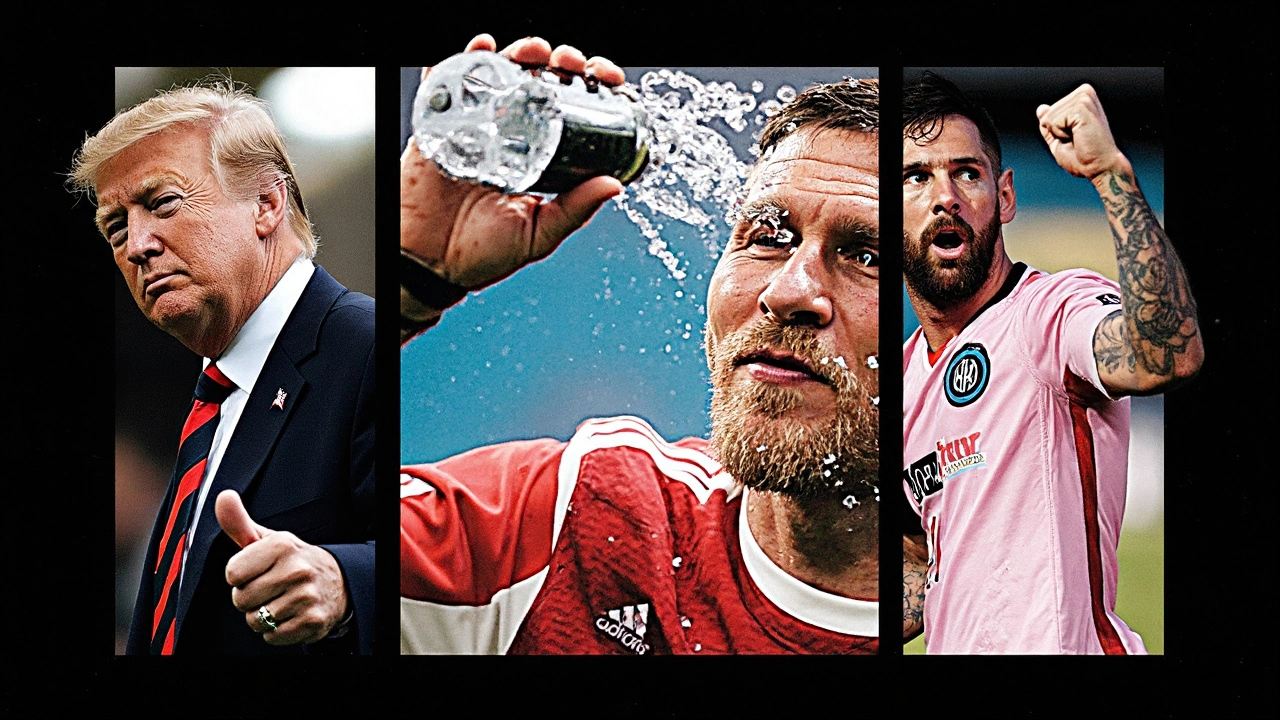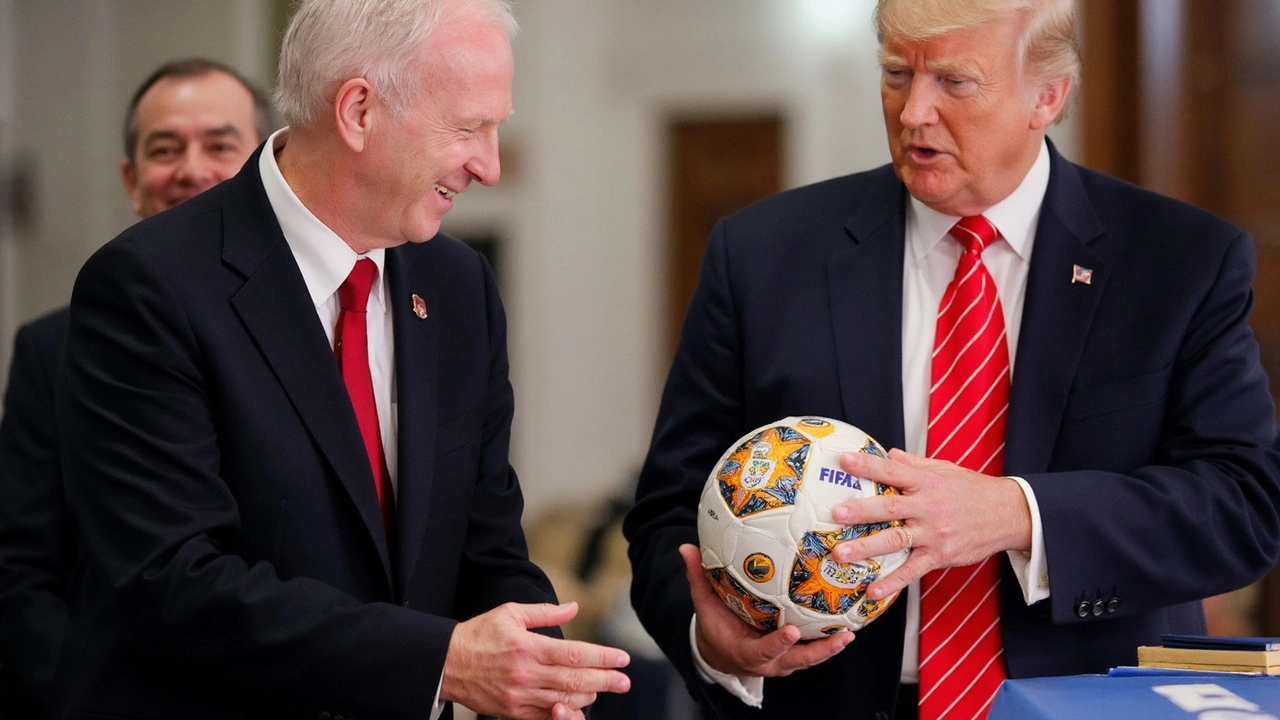The Spotlight Shifts to Las Vegas for FIFA World Cup 2026 Draw
Las Vegas, a city famous for its bright lights and big bets, is stepping into the global football limelight. FIFA has announced the city will host the 2026 World Cup draw in December 2025, turning the famous Strip into the nerve center of the world's biggest sporting event. Moving the draw to the U.S. is a statement—FIFA is ready to make the most of the American co-hosting opportunity by bringing fans, sponsors, and media to a truly iconic venue.
This isn't just any World Cup. With the expansion from 32 to 48 teams, this edition will see more nations than ever before fighting for football's biggest prize. Las Vegas gets to set the scene, handing out the fate of teams from all corners of the globe and launching predictions, debates, and strategies that will fill headlines and airwaves in the months running up to kick-off.
The draw happens after a year packed with tension and action as national teams battle through qualification campaigns around the world. For Europe, 16 teams will secure their spots through group stages and playoffs, but similar scenes of glory—and heartbreak—will play out in Africa, Asia, Oceania, South America, and North America. On top of that, the expanded format means new faces will get their first taste of football on its grandest stage, pushing the sport’s reach even further.

How the Draw Shapes the Tournament—And Why It’s a Can't-Miss Event
The Las Vegas draw will determine which teams face each other in the group stages. While FIFA hasn’t revealed the precise mechanics for this massive draw, we know it will involve 48 countries, including host nations— the United States, Canada, and Mexico—plus the rest who make it through their regional qualifiers or the tricky inter-confederation playoffs. Expect drama and suspense: the draw can turn dark horses into group favorites or place giants head-to-head right from the start.
For fans and teams alike, the draw is much more than ceremonial. Coaches and players will pore over their potential opponents, sizing up strategies and planning friendly games to prepare. Journalists and supporters will speculate endlessly on the so-called ‘groups of death’ or identify easier paths to the knockout stages. The expanded format also means more matches, more logistics for organizers, and a new wave of excitement for cities set to host their first World Cup games.
By heading to Las Vegas for this high-octane event, FIFA is doubling down on its push to grow soccer’s profile in the United States. The draw may just be the start—expect a wave of fan festivals, sponsor events, and cultural celebrations as the tournament build-up gains pace. One thing is certain: come December 2025, the eyes of the football world will be fixed firmly on Vegas to see how the road to World Cup glory will be mapped out.


Karthik Nadig
July 31, 2025 AT 19:30The FIFA draw in Las Vegas is a clear sign that the global football elite are selling out to Western hegemony 🌐💰. India’s growing fanbase is being used as a pawn in a grand scheme to commercialise the sport beyond its roots. They hide the truth behind glitter and slot machines, while the real power brokers pull strings from undisclosed boardrooms. It’s not just about a draw; it’s about who controls the narrative and who profits from our passion. Wake up, people! 🌟🔥
Charlotte Hewitt
July 31, 2025 AT 20:03What nobody tells you about this Vegas draw is that there’s a silent agenda to reshape football’s culture for corporate gain. The location isn’t random; it’s a calculated move to embed the sport in a gambling capital, blurring the lines between sport and vice. They want fans to forget the essence of the game and focus on the spectacle. It’s all a carefully staged illusion, and we’re being fed the glossy version while the core gets diluted.
Jane Vasquez
July 31, 2025 AT 20:53If you think the Vegas spectacle is about anything other than American dominance, you’re living in a fairy tale 😂. The United States will swing the spotlight, and the rest of the world will just applaud the oversized ego on display. It’s a classic case of self‑righteous nationalism masquerading as a global celebration. The whole draw is just a fancy pre‑game for the US to claim bragging rights and sell merch to gullible fans. Pathetic, really.
Hartwell Moshier
July 31, 2025 AT 21:26That's actually pretty wild.
Jay Bould
July 31, 2025 AT 22:16Seeing the World Cup move to a city like Las Vegas is exciting for fans across the globe, especially for those of us who love sharing our culture through sport. India’s diverse football heritage will finally get a platform on this massive stage, and the additional 16 teams mean more nations can showcase their unique styles. It’s a wonderful opportunity for cultural exchange, where fans from Delhi to Detroit can bond over the beautiful game. Let’s celebrate this moment and hope the tournament brings people together, not just profits.
Mike Malone
July 31, 2025 AT 23:06The decision to host the draw in Las Vegas, while undoubtedly a commercial maneuver, also serves as a microcosm of the evolving dynamics within international sport. One may observe that the very act of expanding the tournament to 48 teams reflects an earnest attempt to democratize participation, granting previously marginalized nations an avenue to compete on the world’s most prestigious platform. Yet this democratization is not without its paradoxes; it simultaneously amplifies the complexities of logistical coordination, broadcasting rights negotiations, and the ever‑present specter of financial disparity between footballing federations. In contemplating these tensions, it becomes evident that the spectacle of the draw is as much a philosophical inquiry into the nature of global unity as it is a pragmatic exercise in event management.
From a broader perspective, the integration of new host cities across North America may catalyze a diffusion of football culture, fostering grassroots development in regions where the sport has traditionally lingered in the periphery. Moreover, the inclusion of additional slots could precipitate a recalibration of competitive balance, offering emerging talents the chance to challenge established powerhouses, thereby enriching the tactical diversity witnessed on the field.
Ultimately, the Las Vegas draw stands at the intersection of tradition and innovation, encapsulating both the hopes of a more inclusive footballing world and the inevitable entanglements of commercial imperatives. It invites scholars and enthusiasts alike to reflect upon how sport can both mirror and shape societal trends, serving as a conduit for dialogue, identity formation, and shared aspirations across continents.